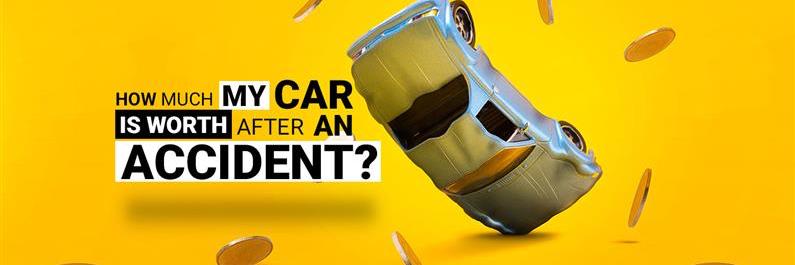Selling A Car After An Accident
After a car accident, one of the biggest concerns many drivers face is the future value of their vehicle. “Can I sell my car after an accident?” and “What’s my car worth now?” are questions that arise immediately. The reality is, whether your car suffered minor cosmetic damage or was declared totaled, its post-accident value will almost always be lower due to something called diminished value. In this refreshed guide, we’ll explore what impacts a car’s value after a crash, whether it’s worth fixing, and the best ways to sell it if repairs just don’t make sense.
What Is My Car Worth After an Accident?
The impact of an accident on your car’s resale or trade-in value depends largely on the severity of the collision, the quality of repairs, and the vehicle’s title history. A minor fender bender with superficial repairs may not significantly drop the value—especially if done professionally. However, if your car experienced structural damage or required panel replacements, it could lose 30% to 50% of its pre-accident value.
In more extreme cases, where a vehicle is declared a total loss and carries a salvage title, you’re looking at serious devaluation—sometimes up to 60% off retail value. This loss is further amplified when potential buyers or dealers see the accident report listed on CarFax or AutoCheck.
Ultimately, how much your car is worth after an accident comes down to the diminished value, a term used by insurers and appraisers to estimate how much value your vehicle has lost because of accident damage even after professional repair.
Is It Worth Fixing My Car After an Accident?
Even if your car is expertly repaired by an I-Car Gold certified shop, its value will never truly return to its pre-accident state. Why? Because once damage is recorded in vehicle history databases, your car’s marketability drops. In fact, up to 55% of used car buyers actively avoid vehicles that have been in accidents.
Let’s say you repair your car perfectly, it drives well, looks new, and has zero mechanical issues. Unfortunately, if frame damage or airbag deployment occurred, that info stays permanently on its history report. This can reduce resale value by 25% to 40%, depending on make, model, and year.
For older vehicles or those with high mileage, the repair cost may approach or even exceed the vehicle’s market value. In such cases, it’s often better to explore cash value sale options than invest in repairs that won’t return your money.
How to Sell a Car After an Accident
If you're holding onto a wrecked or heavily damaged vehicle, selling it may be more beneficial than repairing it—especially if:
Repair costs exceed 60–70% of its current market value
It has a salvage or rebuilt title
The accident affected structural components or electronics
Conclusion
The bottom line? Accidents leave a lasting mark on your vehicle’s value—whether the damage was cosmetic or structural. While minor repairs may still yield a decent resale, serious damage can significantly limit your selling power. Before spending thousands on repairs, it’s worth getting an accurate valuation and exploring your options.
If you’re ready to move on from your damaged car and skip the stress of negotiations or costly repairs, services like DamagedCars provide a safe, fast, and fair alternative.



